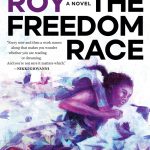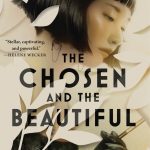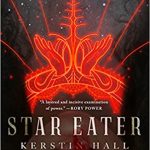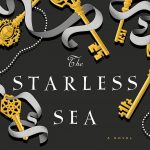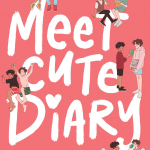“More Shipwrecks!” – An Interview with Freya Marske
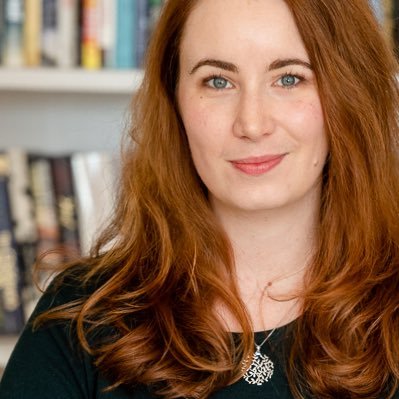
If you, like me, fell madly in love with Freya Marske’s Last Binding Trilogy (A Marvellous Light, A Restless Truth, A Power Unbound), then you, like me, were probably thrilled to learn that she isn’t finished writing! Her next book, Swordcrossed, hits shelves next Tuesday, and we were extremely fortunate to be able to sit down (metaphorically – different continents and all that jazz) with her about it.
Swordcrossed is the story of Mattinesh (Matti) Jay, whose family business is struggling and whose upcoming marriage is the salvation. Unfortunately, Matti’s intended has another admirer, and Matti doesn’t have the skill to win a challenge – if there is one. So he needs to hire someone. And all he can afford is Luca Pierre, who is not entirely what he seems. Blades cross, sparks fly… You get the idea.
——-
Can you talk a little bit about Swordcrossed and how you came up with the idea?
Freya Marske: Every time I type this I giggle all over again, but here it is, the unvarnished truth: I read a Buzzfeed listicle about the historical origins of wedding traditions, which said that the best man was traditionally the man amongst the groom’s friends who was the best at swordfighting, in case someone swept in and tried to carry off the bride at the point of a sword during the ceremony.
My brain, immediately: okay but what if you and your friends lived very non-sword-inclusive lives, and so you hired someone for that?
And ever since the lovely lesbian romcom film Imagine Me & You I’d wanted to do my own queer romance where someone falls very inconveniently in love with their wedding vendor. Tossing the two concepts together with ‘engaged to the wrong person for business reasons’ instantly gave me the backbone of the story. From there it was just a matter of coming up with a pair of entertaining disasters that I could push together, swords in hand, and watch the sparks fly.
Unlike The Last Binding trilogy, which is set in an alternate version of England, Swordcrossed is set in an entirely fictional world. How does the writing process differ when you’re creating an entire new world from scratch?
I’d say ‘less research, more invention’ except that I honestly think the balance between research and invention was about the same for both! Swordcrossed is set in a city that draws on the historical aesthetics of a handful of real places – predominantly Amsterdam, Florence and Bruges – and the protagonists’ industries of formal swordplay and wool production are also very real. So I did a lot of reading about the historical wool industry and about the history of dueling as a profession, legal challenge, and hobby.
There’s no outright magic in this world, so most of the invention and worldbuilding was social and religious. How does a wide pantheon of patron gods intersect with a society where status is tied to tradehouses and professional guilds? How does one construct and conceive of a family that is also a business? I couldn’t solve any problems for my characters with magic spells, but I could certainly make a lot of problems for them by embedding them in a society with richly textured rules and expectations. And I enjoyed the process thoroughly.
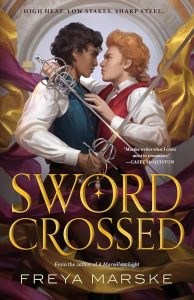 We alternate between Matti and Luca’s perspectives. Was it more challenging to get into one of their headspaces than the other? Who was your favorite to write for?
We alternate between Matti and Luca’s perspectives. Was it more challenging to get into one of their headspaces than the other? Who was your favorite to write for?
Matti’s was the easiest to get into from the very beginning, but once I had a handle on Luca’s perspective I found him enormous fun to write. I love writing characters who are liars and performers: playing with the contrast between the sparkling, cautious things he says and how he presents himself, and the true turmoil that’s taking place inside Luca’s head, was both a challenge and a joy.
Personality wise, are you more of a Matti or a Luca? (Or a Maya or a Sophia even?)
Luca has a handful of my own traits – most notably, the desire to give up on a new interest or task unless one can be good at it right away. I’m a terribly impatient beginner! But I’m overwhelmingly closer to Matti in personality. There are some things that are somewhat inescapable for an oldest sibling. And for all that he’s quieter and more prone to worrying, Matti has a far more solid belief in his own strengths and self-worth.
How different is it crafting a queer romance when you don’t have to worry about all that pesky homophobia?
Freeing in some ways, certainly! And demanding more creativity in others. When characters don’t have any [internalized] hurt or wariness related to their sexuality, and no societal barriers in the form of systemic homophobia, the friction points of the romance shift by necessity. What else about their personalities is standing in the way of vulnerability and love? What else about the world and their lives is making their happy-ever-after seem impossible?
I think it’s important for queer readers to be able to see their own fights and traumas and experiences reflected in romances. And I think it’s good for them to also have the choice of picking up a book where that all vanishes and leaves only some queer dumbasses having sexy adventures with swords. Queer literature is a rich tapestry, containing multitudes.
The worldbuilding in this novel feels very rich, but also as though there is so much more to discover. Not only is there completely original geography, but also a religion and a system of government! Are there any plans for future books set in this world?
I appreciate hearing that! As with – oh, here comes my own personal lack of experience in fibrecrafts – let’s say a quilt?? – the worldbuilding was built up in successive layers and embellishments with each revision of the book. The first draft really only cared about the characters and their love story. The second draft sighed heavily and made the politics a more striking element. The third draft sewed on a few more sparkly charms in the form of history and superstition and working out formal timelines and how long it actually took to travel between cities. And so forth.
I have no current plans for any future books set in this world, but the wonderful thing about having put all that effort into building a city and a society is that it’ll still be there, waiting patiently in the Notes section of the draft file, if I ever decide to revisit it. (And several of the secondary and supporting characters do still pop into my head from time to time, posing suggestively and tempting me to think of stories that they could star in…)
If you could give your characters one piece of advice, what would you tell them?
GET OUT OF YOUR OWN WAY, YOU IDIOTS.
And of course: you deserve to be completely happy, just the way you are.
Aside from entertainment, what do you hope readers take away from Swordcrossed?
I personally am a complete sucker for stories of mercantile intrigue, and I want to recruit more readers onto my side here. More spies! More sabotage! More shipwrecks! More lively digressions about transport logistics and the economics of market manipulation! I want to stoke an appetite for romantasy that doesn’t have to be epic; I still hesitate a little over cozy as a descriptor for Swordcrossed in particular, but I wanted to show that the stakes of family and ambition and romantic happiness can engage a reader’s emotions just as effectively as stakes involving the fates of nations and thrones, or destruction by dragonfire, or chosen-one sorcerers fighting for their very lives.
We’re all fighting for something. We all want to be happy.
Author: Jamie Sugah
Jamie has a BA in English with a focus in creative writing from The Ohio State University. She self-published her first novel, The Perils of Long Hair on a Windy Day, which is available through Amazon. She is currently an archivist and lives in New York City with her demon ninja vampire cat. She covers television, books, movies, anime, and conventions in the NYC area.
Help support independent journalism. Subscribe to our Patreon.
Copyright © The Geekiary
Do not copy our content in whole to other websites. If you are reading this anywhere besides TheGeekiary.com, it has been stolen.Read our


